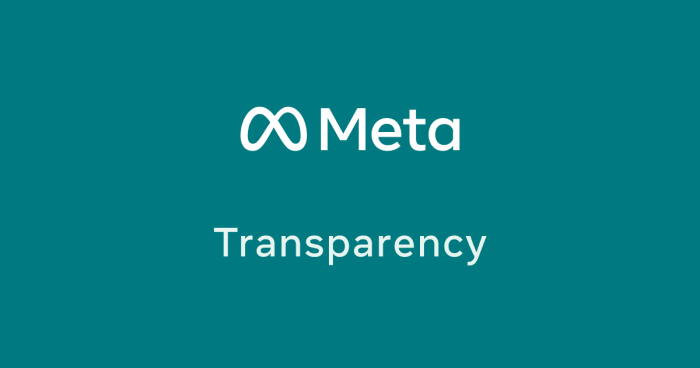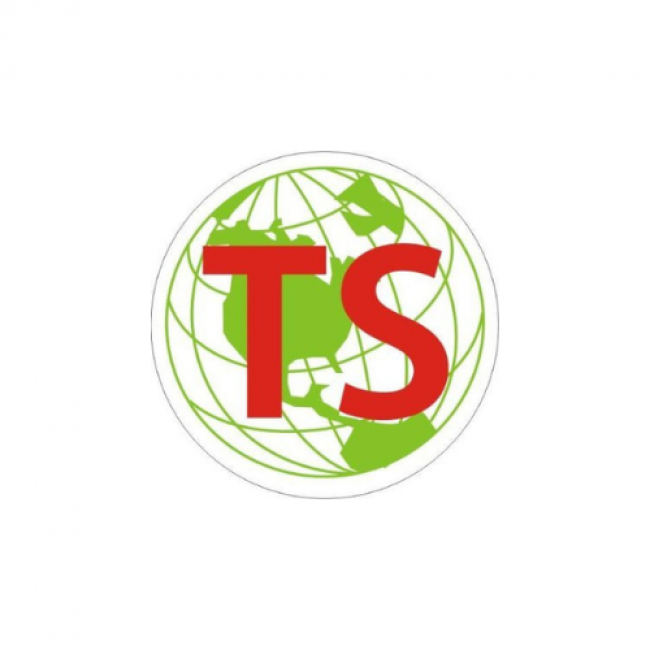
Introduction
In the digital age, the issue of user data privacy has become increasingly significant. Companies like Meta, formerly known as Facebook, have faced scrutiny and concerns regarding the requests they receive from governments for user data. In 2022, Meta witnessed an alarming surge in government requests, with over 800,000 requests made throughout the year. This article aims to delve into the implications of this surge, explore the reasons behind it, and discuss the potential consequences for user privacy.
1. Government Requests for User Data: A Growing Trend
The past year has witnessed a substantial increase in government requests for user data. Meta, as one of the world's largest social media platforms, has found itself at the center of this surge. In 2022 alone, Meta received over 800,000 requests from various governments worldwide. This surge raises concerns about the impact on user privacy and the balance between government demands and individual rights.
The Impact on User Privacy
The significant increase in government data requests poses a direct threat to user privacy. Users entrust platforms like Meta with their personal information, assuming it will be protected and only used within the platform's intended purposes. However, with the rising number of data requests, there is a growing possibility of unauthorized access, misuse, or mishandling of user data. This can lead to privacy breaches, identity theft, and other serious consequences for individuals.
Legal Frameworks and Obligations
To address the increasing demand for user data, social media platforms operate under legal frameworks and obligations. Governments have the authority to request data from platforms like Meta for various reasons, including criminal investigations, national security concerns, and ensuring public safety. However, it is crucial to strike a balance between fulfilling these requests and safeguarding user privacy rights.
2. Meta's Role in Data Requests
Meta has the responsibility to respond to government requests while protecting user privacy to the extent possible within legal boundaries. The company has taken several steps to increase transparency and provide users with insights into the data requests it receives.
Transparency Reports
Meta publishes regular transparency reports that outline the number of government requests received, the types of requests, and how the company has responded to them. These reports aim to offer users and the public at large a clearer understanding of how Meta handles data requests and its commitment to user privacy.
Handling of Sensitive Data
Meta acknowledges the sensitivity of user data and has implemented stringent security measures to protect it. This includes encryption protocols, secure storage, and access controls to limit unauthorized access. By prioritizing user privacy and implementing robust data protection practices, Meta aims to strike a balance between government demands and individual rights.
3. Factors Contributing to the Surge
Several factors have contributed to the significant surge in government requests for user data. Understanding these factors can shed light on the underlying reasons behind this trend.
National Security Concerns
In an increasingly interconnected world, governments are grappling with national security challenges. The rise of cyber threats, terrorism, and organized crime has led authorities to seek access to user data in their efforts to identify and prevent potential threats. As a result, they turn to social media platforms like Meta to gather intelligence and aid their investigations.
Law Enforcement Investigations
Law enforcement agencies rely on user data to investigate crimes, track suspects, and gather evidence. With the growing reliance on digital communications, social media platforms have become a valuable source of information for investigators. As a consequence, the number of data requests made by law enforcement agencies has surged.
Terrorism and Cybersecurity Threats
Terrorism and cybersecurity threats pose significant challenges in the modern world. Governments are increasingly seeking user data to identify potential terrorists, track their activities, and prevent attacks. Additionally, cybersecurity investigations require access to user data to uncover digital vulnerabilities, trace the origins of attacks, and safeguard critical infrastructure.
4. User Data Protection Measures
In response to the rising concerns about data privacy, Meta has implemented various measures to protect user data and enhance overall security.
End-to-End Encryption
Meta has been actively working on implementing end-to-end encryption across its messaging services. This ensures that only the intended recipients can access the contents of messages, providing an additional layer of privacy and security for users.
Enhanced Security Features
The platform has introduced enhanced security features such as two-factor authentication, biometric login options, and advanced privacy settings. These features empower users to take control of their data and safeguard their accounts from unauthorized access.
5. Balancing User Privacy and Government Demands
Finding the right balance between user privacy and government demands is a complex task. It requires collaboration between technology companies, governments, and civil society to establish frameworks that protect individual rights while addressing legitimate concerns.
Striking the Right Balance
Platforms like Meta need to carefully evaluate government requests and assess their legitimacy and legal basis. By engaging in transparent dialogues with government entities and advocating for privacy rights, these platforms can help strike a balance that respects user privacy without compromising public safety and national security.
Advocacy for Privacy Rights
Users and privacy advocates play a crucial role in shaping the conversation around user data privacy. By raising awareness, advocating for robust data protection measures, and supporting organizations that champion privacy rights, individuals can contribute to a more privacy-conscious digital landscape.
6. The Potential Consequences
The surge in government requests for user data has potential consequences that extend beyond immediate privacy concerns.
Chilling Effect on Free Expression
Increased scrutiny and surveillance of user data can have a chilling effect on free expression. Users may become hesitant to share their thoughts, opinions, and personal information, fearing potential repercussions or misuse of their data. This can hinder open dialogue and the free flow of information on social media platforms.
Erosion of Trust
The perception that user data is not adequately protected can erode users' trust in social media platforms. If individuals feel that their privacy rights are being disregarded, they may choose to limit their online activities or seek alternative platforms that prioritize privacy. Restoring trust and ensuring data protection measures are robust is crucial to maintaining a healthy online ecosystem.
Implications for Global Users
The surge in data requests primarily affects users within the jurisdictions of the requesting governments. However, given the global nature of social media platforms, users from other countries may also experience indirect consequences. The policies and practices adopted by platforms like Meta to handle data requests in one jurisdiction can set precedents and influence approaches in other regions.
The Surge of Government Requests
Understanding the Landscape
In recent years, the exponential growth of internet users has raised significant concerns regarding data privacy and government surveillance. Governments around the world have become increasingly interested in accessing user data from major technology companies. In 2022, Meta, formerly known as Facebook, faced a staggering surge in government requests for user data, surpassing the 800,000 mark. This surge has sparked debates on the balance between national security, individual privacy, and the power of big tech companies.
The Impact on Meta
The influx of government requests has put Meta in a challenging position. As a platform that connects billions of users globally, Meta holds vast amounts of personal data. These requests range from legal investigations to national security concerns, often requiring Meta to comply and share user data with the respective authorities. While Meta strives to strike a balance between user privacy and cooperation with governments, the sheer volume of requests has raised concerns among users and privacy advocates.
The Concerns Surrounding User Data Requests
Privacy and User Trust
One of the primary concerns arising from the surge in government requests for user data is the potential breach of privacy. Users entrust social media platforms with their personal information, assuming it will remain secure and confidential. However, with increasing government intervention, users may question the extent to which their privacy is protected. This erosion of trust can have significant implications for user engagement and the reputation of tech companies.
Scope of Government Surveillance
The surge in government requests also raises questions about the scope of government surveillance. While legitimate requests are essential for maintaining law and order, there is a fine line between necessary surveillance and excessive intrusion into personal lives. The sheer volume of requests received by Meta and other tech companies highlights the need for transparency and accountability in the process.
Possible Solutions and Initiatives
Strengthening User Privacy Measures
To address the concerns surrounding government requests for user data, Meta and other tech companies can take steps to enhance user privacy measures. This includes implementing robust encryption protocols, anonymizing user data, and providing users with greater control over their personal information. By prioritizing user privacy, these companies can build trust and mitigate concerns.
Advocating for Legislative Changes
Tech companies, privacy advocates, and concerned individuals can collectively advocate for legislative changes to protect user privacy. Through lobbying efforts and public awareness campaigns, stakeholders can push for updated laws and regulations that strike a balance between national security and individual privacy rights. By actively engaging with lawmakers, progress can be made to address the challenges posed by the surge in government requests.
7. Conclusion
The surge in government requests for user data, with Meta receiving over 800,000 requests in 2022, raises significant concerns about user privacy and the balance between government demands and individual rights. As technology continues to advance, it is crucial for stakeholders to work together to establish frameworks that prioritize user privacy while addressing legitimate concerns related to national security and public safety.
In an era where data has become an invaluable resource, protecting user privacy is of utmost importance. By implementing robust data protection measures, advocating for privacy rights, and fostering transparent dialogue, we can strive towards a digital landscape that respects individual privacy while enabling the benefits of a connected world.
















